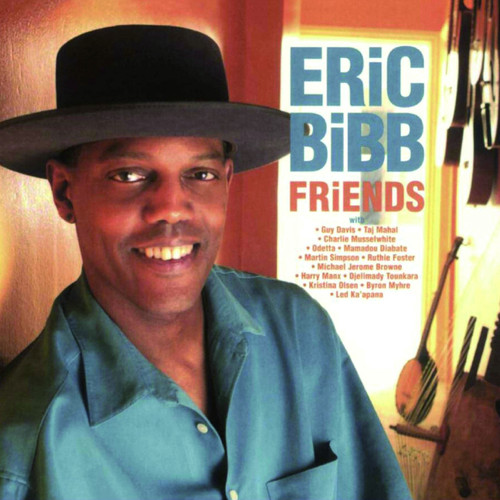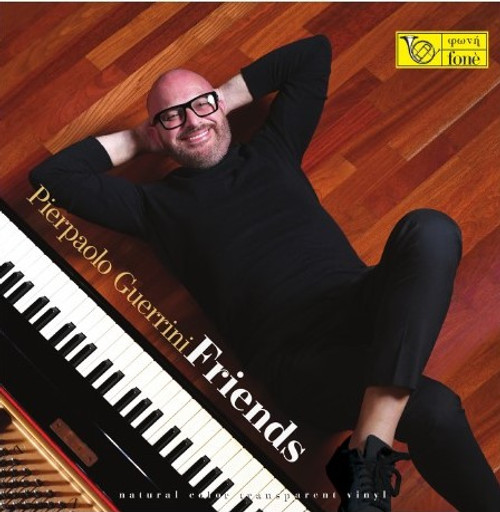In 1978 Pharoah Sanders went into the studio with pianist, Ed Kelly, who was an important figure in the local San Francisco and Oakland jazz scene. The two of them recorded six tracks which ranged from covers of standards, through soul jazz through to two real gems. The album was originally released as "Ed Kelly And Friend" due to Pharoah being contracted to Arista Records at the time. Indeed, as you can see, the cover shows Kelly playing next to Pharoah’s hat, shoes and Selmer tenor saxophone. "Rainbow Song", a Kelly composition, opens matters in a manner far removed from Pharoah’s work on his Impulse albums (although there had been a dramatic change of course when he signed with Arista and recorded). This is firmly in Grover Washington Junior territory with a liberal sprinkling of oh so tasteful strings. The Master’s sound is full and mighty as ever. With the radio track out of the way it is business as hoped for and Newborn is a Sanders composition that burns with intensity. The power of his solo is as good as anything he has produced and he runs over the full span of the tenor’s range and onwards into territory lesser known or explored by 99% of sax players. Sam Cooke’s "You Send Me" is treated with reverence and respect, with Pharoah delivering a sensitive and heartfelt rendition and ending with some extraordinary phonics, which we will meet again on later albums. Kelly’s accompaniment complements Sander’s playing before he receives his own space for a shimmering yet restrained solo which discloses what this non-pianist assumes to be an agile right hand. "Answer Me My Love" is an early 50’s ballad with a fascinating back story. On its initial release in post-war Britain, covers of this fine melody stirred sufficient controversy for the song to be banned by the BBC. What led to it being barred from broadcast on the Light Programme and treated like "Anarchy For The UK", "Wet Dream" and "Give Ireland Back To The Irish"? I can reveal that the reason for this draconian action was that the original version was entitled "Answer Me, My Lord". In the olden days, it seems that a direct appeal to God was considered to be blasphemous- especially if set in a secular or selfish. Further research indicates that Nat King Cole made the most celebrated recording and that Bob Dylan used to sing it live in the 1990’s, presumably during his overtly Christian phase. Anyway, it is a grand tune. Pharoah went on to record at least three studio versions of his great anthem "You’ve Got To Have Freedom" but the one here is the earliest incarnation that I am aware of. It is also the most restrained treatment of the theme, although Pharoah’s solo shows his ability to play with fire and power over the entire range of the horn. There’s plenty of space for Kelly’s piano too and he provides an elegant setting for Sanders’ exploratory work.
1978 ging Pharoah Sanders ins Studio mit dem Pianisten Ed Kelly, der eine wichtige Figur in der lokalen Jazzszene von San Francisco und Oakland war. Die beiden nahmen sechs Titel auf, die von Coverversionen von Standards über Soul-Jazz bis hin zu zwei wahren Glanzstücken reichten. Das Album wurde ursprünglich unter dem Titel "Ed Kelly And Friend" veröffentlicht, da Sanders zu dieser Zeit bei Arista Records unter Vertrag stand. Auf dem Cover sieht man, wie Kelly neben Sanders Hut, Schuhen und Selmer Tenorsaxophon Klavier spielt. "Rainbow Song", eine Komposition von Kelly, eröffnet das Album auf eine Art und Weise, die weit von Sanders Arbeit auf seinen Impulse-Alben entfernt ist (obwohl es natürlich einen dramatischen Kurswechsel gegeben hatte, nachdem er bei Arista unter Vertrag genommen und dort Aufnahmen machte). Das Stück befindet sich mitten im Territorium von Grover Washington Junior mit einem freigiebigen Spritzer ach so geschmackvoller Streicher. Der Klang des Meisters ist voll und mächtig wie eh und je. Nachdem nun der Track für das Radio aus dem Weg ist, entwickelt sich das Geschen wie erhofft, "Newborn" ist eine Komposition von Sanders, die vor Intensität nur so lodert. Sein Solo hat die Kraft all' seiner vorherigen Produktionen und erstreckt sich über die gesamte Spanne des Tenorsaxophons und weiter in Gebiete, die 99% der Saxofonisten unbekannt sind oder von ihnen kaum erforscht werden. Sam Cookes "You Send Me" wird mit Ehrfurcht und Respekt behandelt, wobei Sanders eine einfühlsame und aufrichtige Interpretation liefert und mit einigen außergewöhnlichen Lautmalereien endet, die wir auf späteren Alben wieder treffen werden. Kellys Begleitung ergänzt Sanders Spiel, bevor er seinen eigenen Raum für ein flirrendes, aber zurückhaltendes Solo erhält, das offenbart, was dieser Nicht-Pianist für eine agile rechte Hand hält. "Answer Me My Love" ist eine Ballade aus den frühen 50er Jahren mit einer faszinierenden Hintergrundgeschichte. Bei ihrer Erstveröffentlichung im Großbritannien der Nachkriegs-Zeit riefen verschiedene Aufnahmen dieser ansprechenden Komposition reichlich Kontroversen hervor, so dass das Lied von BBC-Sendungen ausgeschlossen wurde. Was führte dazu, dass es von der Ausstrahlung im Light-Programm ausgeschlossen und wie "Anarchy For The UK", "Wet Dream" und "Give Ireland Back To The Irish" behandelt wurde. Ich kann verraten, dass der Grund für diese drakonische Aktion darin lag, dass die Originalversion den Titel "Answer Me, My Lord" trug. Es scheint, dass seinerzeit ein direkter Appell an Gott als blasphemisch angesehen wurde - vor allem, wenn er in einem säkularen oder eigennützigen Rahmen angesiedelt war. Weitere Untersuchungen deuten darauf hin, dass Nat King Cole die berühmteste Aufnahme gemacht hat und dass Bob Dylan sie in den 1990er Jahren live gesungen hat, vermutlich während seiner offenkundig christlichen Phase. Wie auch immer, es ist eine großartige Melodie. Pharoah nahm mindestens drei Studioversionen seiner großen Hymne "You've Got To Have Freedom" auf, aber die hier vorliegende ist die früheste Inkarnation, die mir bekannt ist. Es ist auch die zurückhaltendste Behandlung des Themas, obwohl Pharaos Solo seine Fähigkeit zeigt, mit Feuer und Kraft den gesamten Tonumfang seines Instruments aufzuzeigen. Es gibt auch viel Raum für Kellys Klavier, und er bietet einen eleganten Rahmen für Sanders' Sondierungen.










